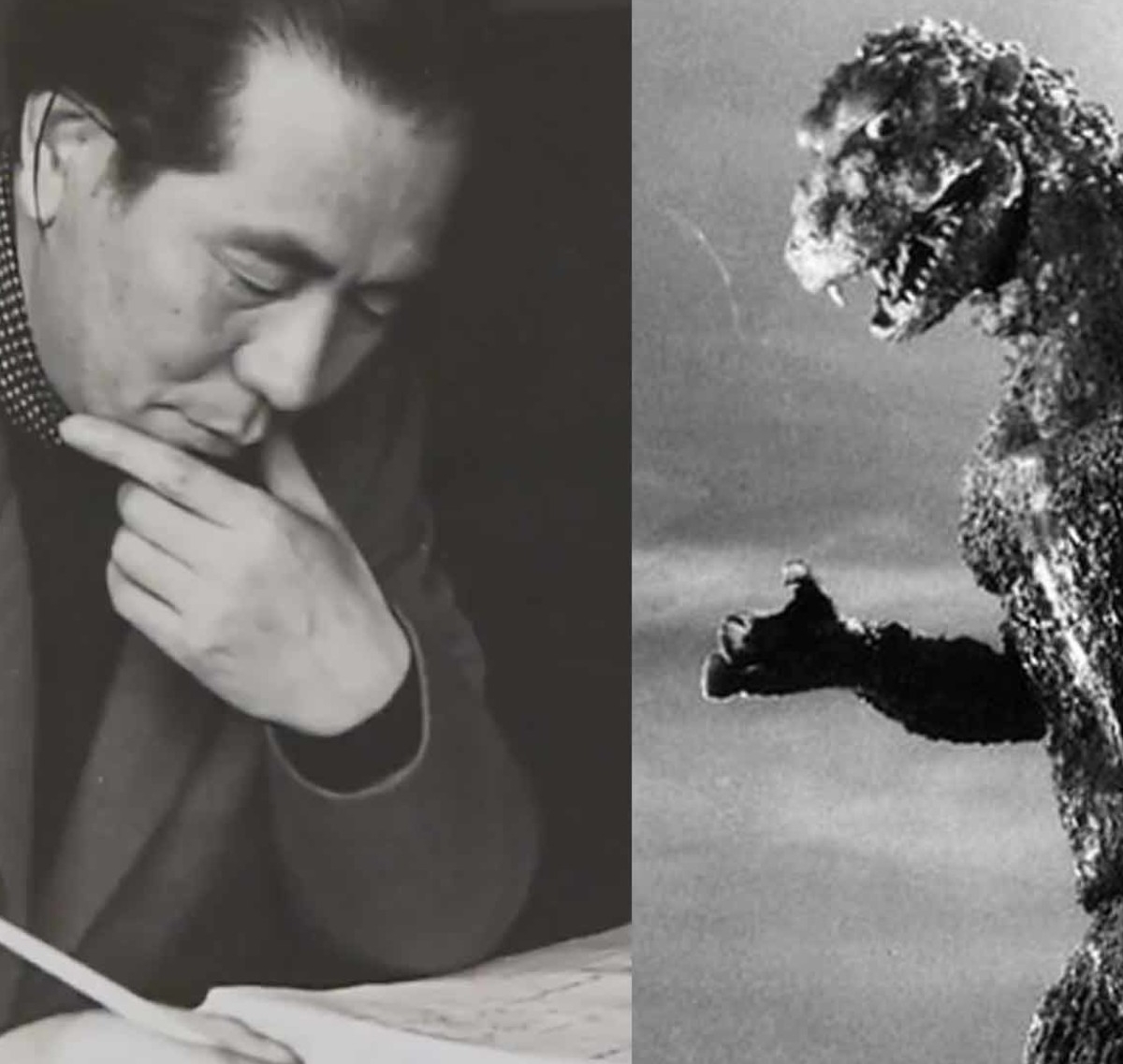Following on from Hikaru Hayashi, we dip into the next Japanese composer, a prolific writer of film scores best for the famous Godzilla monster movies, as well hundreds of other classical pieces. Akira Ifukebe grew up in Hokkaido and his early influence was traditional Ainu music, but it was hearing Igor Stravinsky’s The Rite of Spring that inspired his considerable talent. His Japanese Rhapsody was his first major piece, which in 1935 won him an international competition for young composers promoted by the Russian-born French composer and pianist Alexander Tcherepnin. He was just 21 at the time – displaying an astonishing maturity and breadth of vision, that would eventually open up a glittering career, one that at least did not really take off until after the second world war. Until that time he variously worked as a forestry and lumber processor in Akkeshi, and then for the Japanese army and also suffered from radiation sickness from over-exposure to X-rays due to a war-time lead shortage. The irony is that his best know music became associated with the cult monster, Godzilla, who came out of radiation. So here, by contrast to the far gentler music of our previous Japanese composers, is the epic style of that early Japanese Rhapsody and all its thunderous glory, with huge timpani and brass opening, his Symphonic Fantasia No 1, then main theme on led first string, then trumpets, one of three works created in 1983 from all of those film scores.
The composer also created the original Godzilla roar by rubbing a resin-covered leather glove along the loosened strings of a double bass – and the monster’s massive footsteps, created by striking an amplifier box. A sample is also included below.
Want to suggest songs for Song of the Day or to say anything about it? Does this song make you think of something else? Then feel free to comment below, on the contact page, or on social media: Song Bar Twitter, Song Bar Facebook. Song Bar YouTube. Please subscribe, follow and share.
New to comment? It is quick and easy. You just need to login to Disqus once. All is explained in About/FAQs ...

